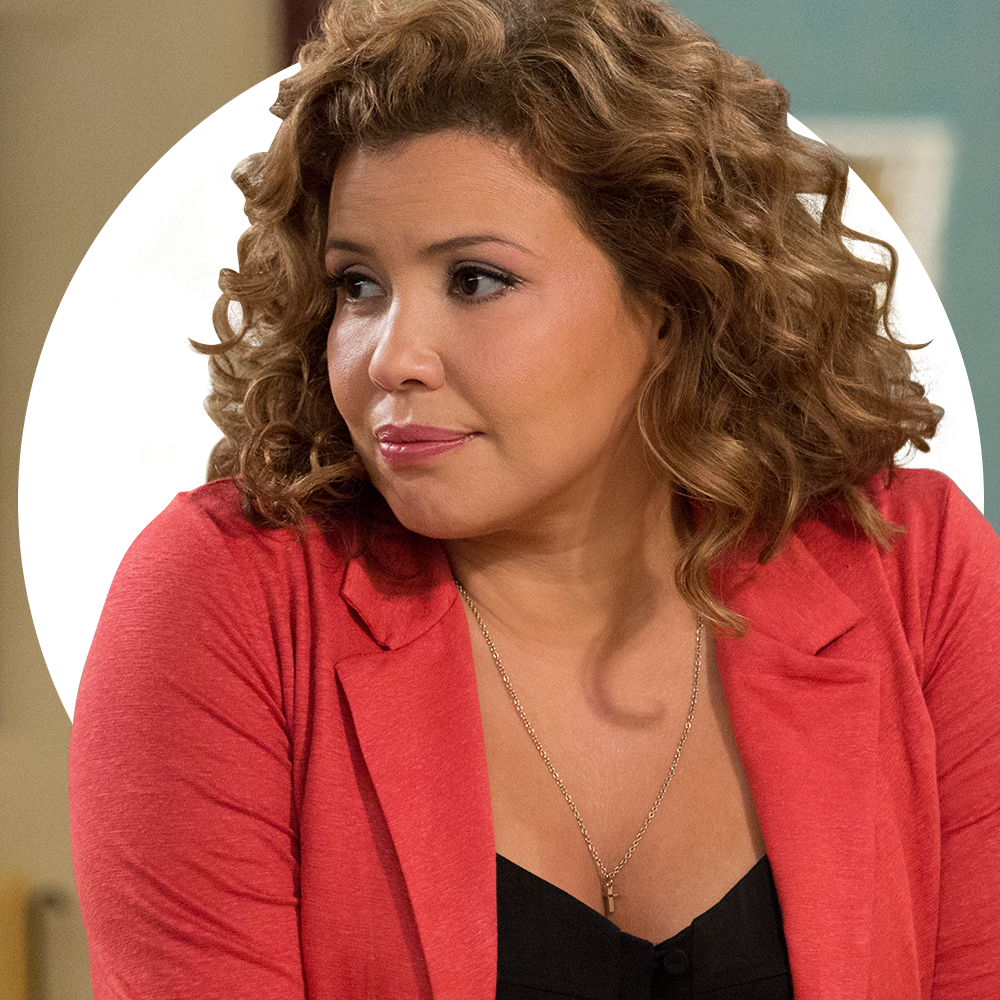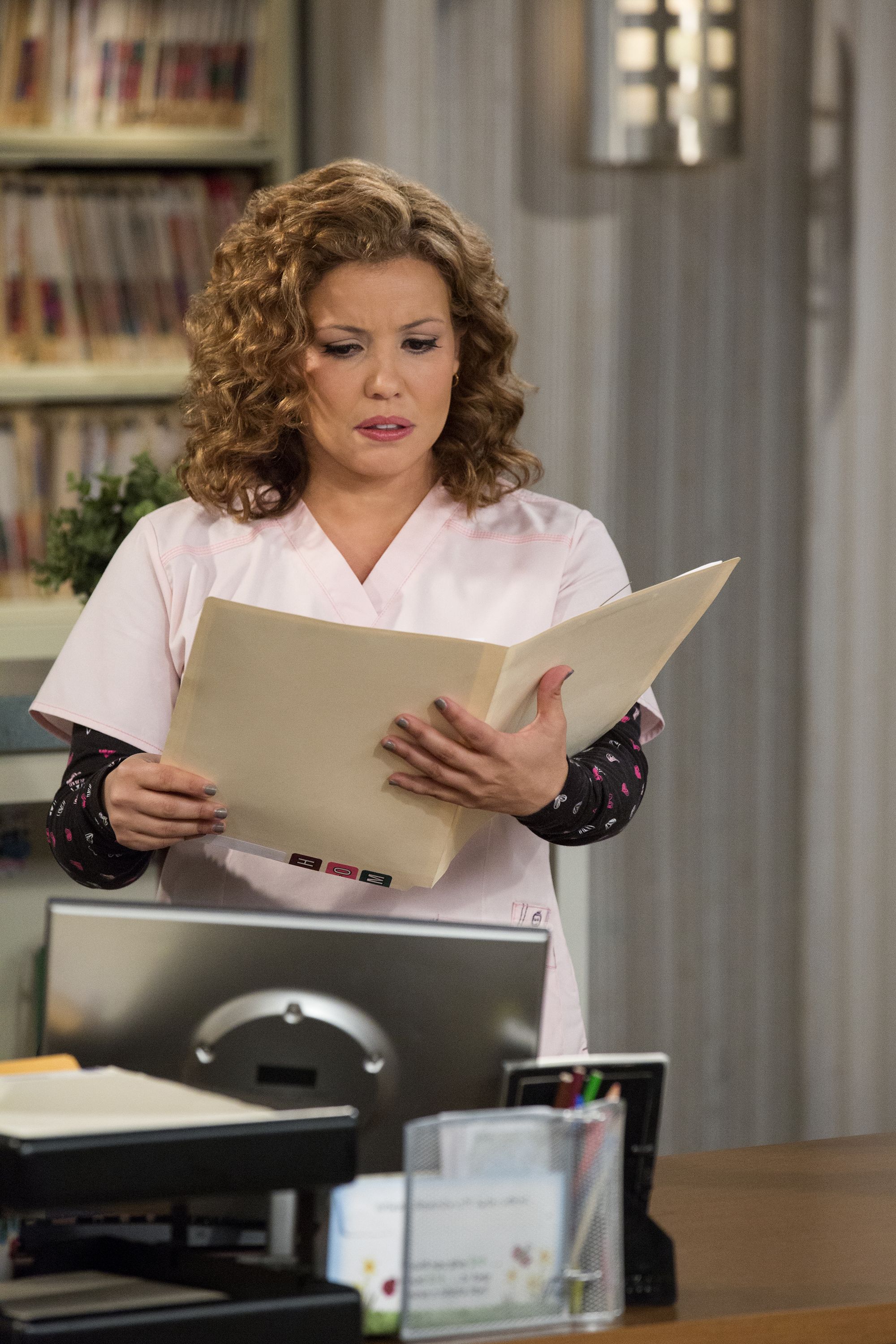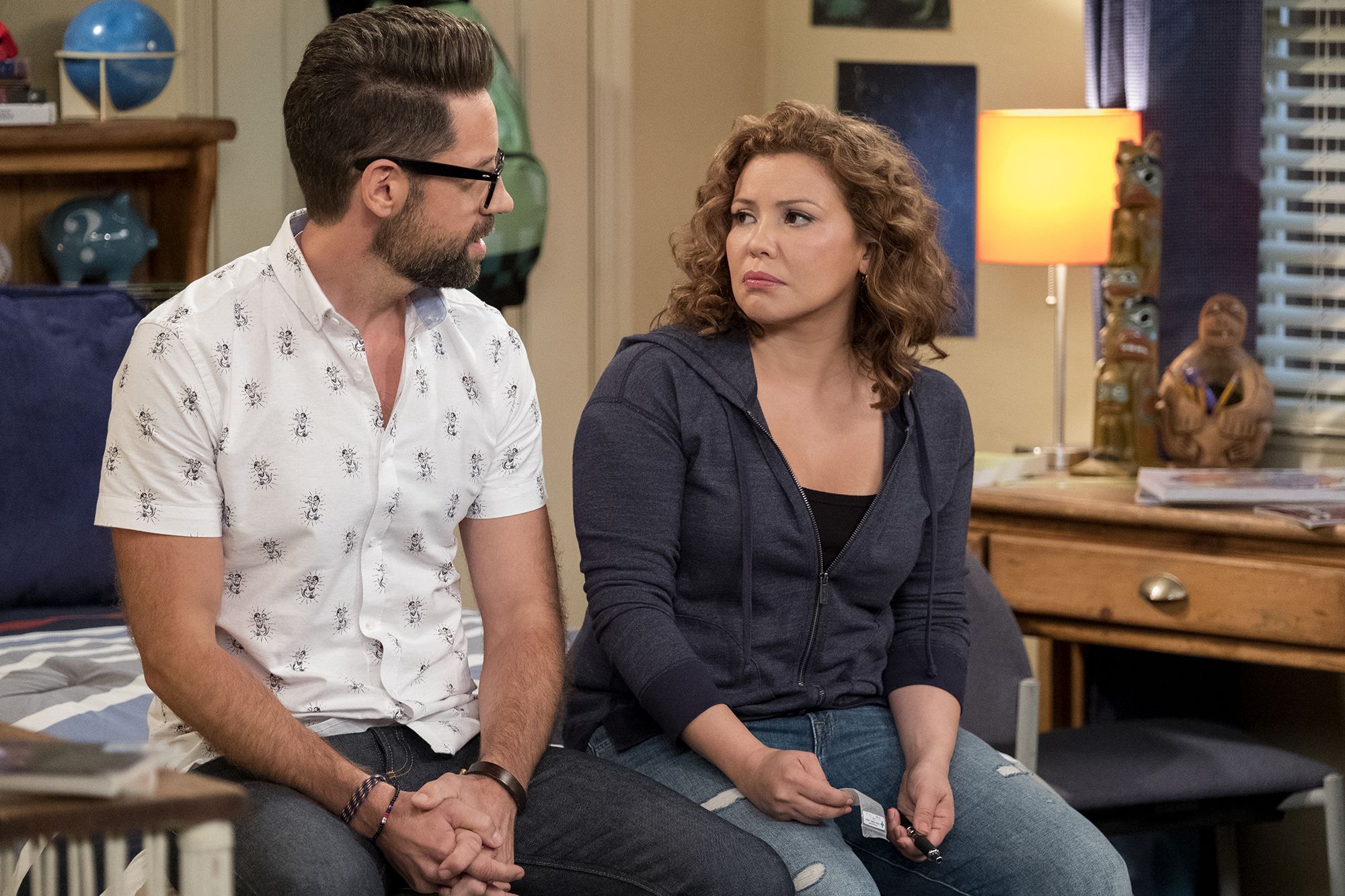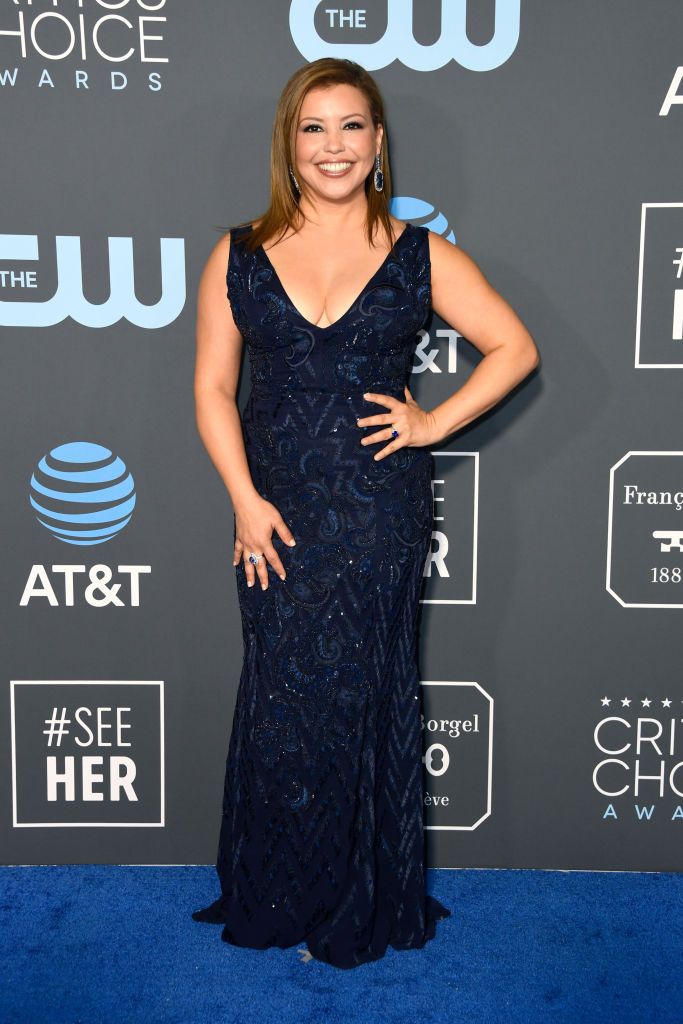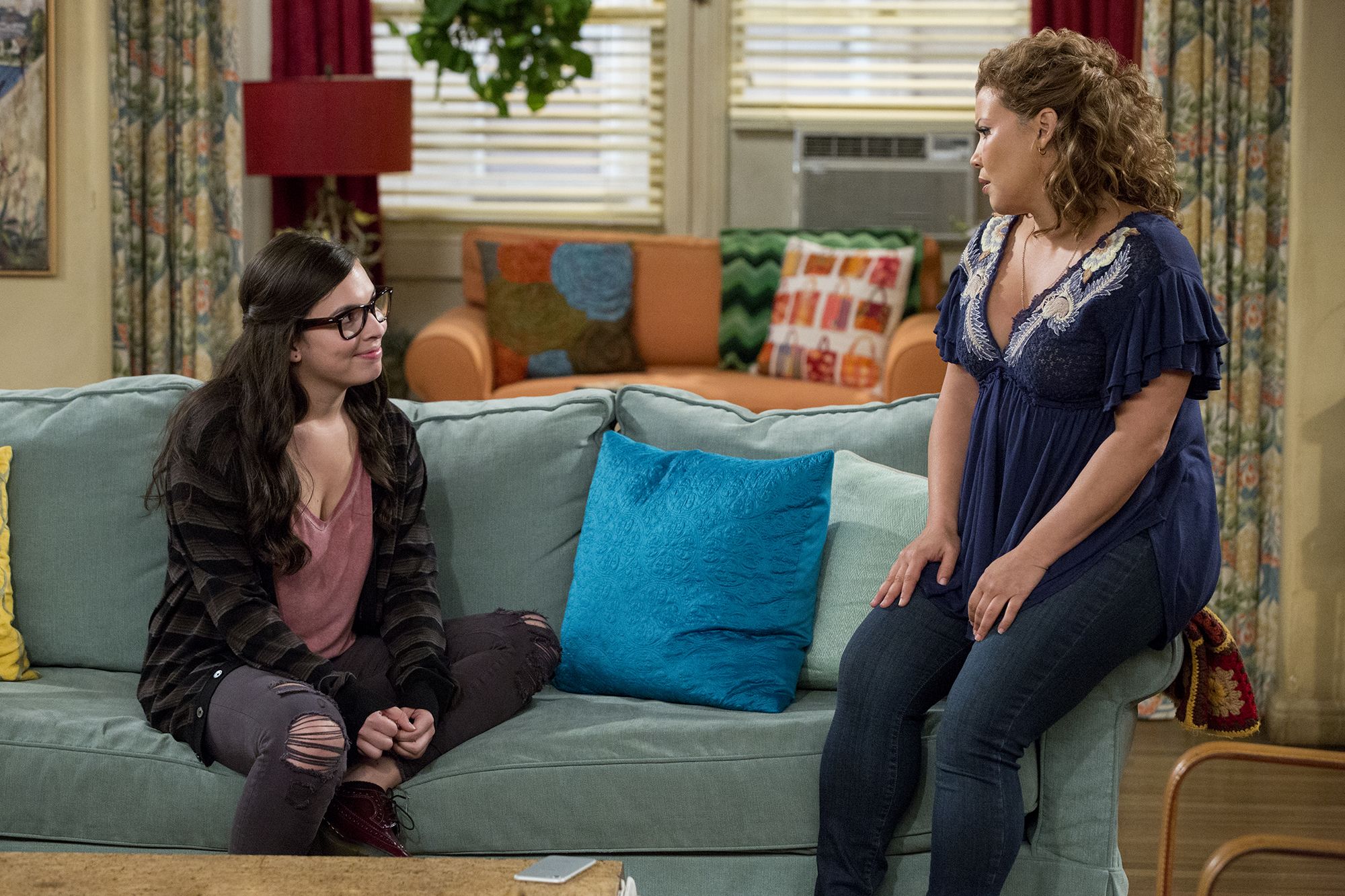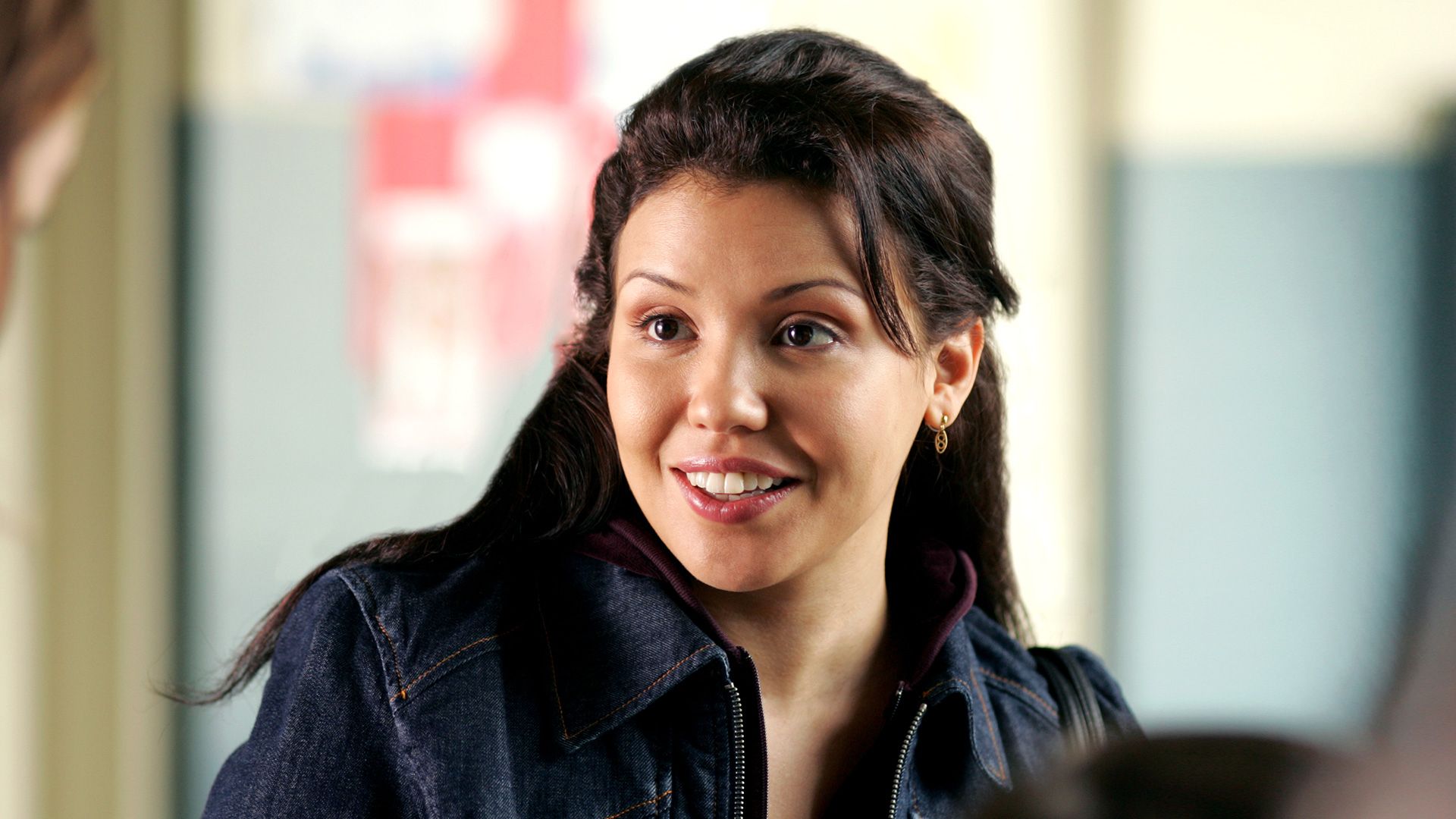Justina Machado Is One of the Most Dynamic Actresses on TV

Justina Machado has spent more than two decades embodying wildly different characters across genres: A pregnant driver who narrowly escapes Death in Final Destination 2; a hard-working nursing assistant and wife of a restorative artist in Six Feet Under; a mom on the run from a dangerous cartel in Queen of the South. But as Penelope Alvarez on One Day at a Time, she embodies multiple roles at once: A modern mother raising two politically-engaged teens in today’s divided world; a staff sergeant-turned-nurse coping with anxiety; a single woman ready to love again.
For Machado, portraying the many layers of femininity onscreen is a reflection of who she is. Years of navigating a predominantly-white Hollywood as a Latina who still has to remind people that Puerto Rico is part of the United States has equipped her with chameleon-like armor. She can morph into any role and turn a difficult situation into a learning moment for herself and others. Through her performance on One Day at a Time, comedy has become her newest weapon against hate and intolerance.
Season 3 of the Netflix series, which premieres on Friday, finds Penelope more confident than ever, opening up to her children Elena (Isabella Gomez) and Alex (Marcel Ruiz) about her struggles with mental health, her FNP certification exam, and the new man in her life. We also see her have a little fun this season, like laughing over cocktails with girlfriends, and remain a support system for friends like Schneider (Todd Grinnell) when they need her most. But above all, Machado is passionate about using Penelope’s story to convey what it means to be a true ally, someone who opens her heart to both her queer daughter and her male confidant.
The actress talked to BAZAAR.com about what her role as Penelope means to her, whether we’re at a turning point for Latinx representation onscreen, and why Tom Brokaw’s recent comments about assimilation are completely out of touch.
Harper’s BAZAAR: Penelope’s relationship with her kids and her role as a mother has always been at the forefront of the show, but this season we see her back on the dating scene with her new boyfriend Jim and exploring more of her sexuality. What was it like to delve into this other side of Penelope?
Justina Machado: I’ve always wanted to play that kind of woman, whether or not she is a mother—somebody who’s taking care of people but also taking care of herself. Because I don’t think we see that enough. I love that our show does that. On so many traditional sitcoms, the mom is nonexistent or she’s just kind of there, and it’s all about the kids and it’s all about the man. Penelope is fiercely protective of her children, an incredible daughter, and a wonderful mother, but she’s also young and has a life too. That’s so wonderful to see and I love letting women see themselves like that, to know that it’s not over because you have two teenage kids and you’re in your 40s.
HB: I think it’s especially important to see a single mom dating because so often we see the man move on to a healthy relationship after a break up, while the woman focuses on the kids and has no romance in her life.
JM: And she gets to be a little superficial! Like, Oh, that guy’s a dork! She’s being real, not like this saintly kind of mother—not someone who’s like, He’s a good man. I should date him. It’s pretty amazing. These are real feelings, real thoughts.
HB: Absolutely. Just like any other woman, mothers shouldn’t settle either. Penelope’s reaction to Victor’s engagement is also realistic. She’s happy for him, but she has some resentment because when they were together he was not the man he is now.
JM: She’s like, Yo, I hooked him up. And look at what’s happening! It’s something that we’ve heard so many times from all our girlfriends. Like, I did this and now look at that guy! Look at what he’s doing now! I’ve had those feelings. I don’t know one woman who hasn’t had that feeling. It’s wonderful when people can look at this and say, Okay, I’m not the only one.
HB: We also see Penelope’s mental health remain at the forefront as she continues to attend her support group and develop friendships from it. She even talks to her kids about it for the first time and allows herself to be vulnerable in front of them.
JM: I don’t suffer from depression, but as I’ve gotten older, I’ve had more anxiety for some reason. I don’t know why. But it’s fantastic to see that [on the show]. It’s happening to people every day. [Penelope’s story] is teaching the people who are around the people that are dealing with it. So they don’t say things like, Oh my God, get over it. What’s wrong with you? Just breathe! Or they give them all this crazy stuff to help them push things down as opposed to talking about them. I hope it helps people understand that it’s not something they can snap their fingers at, and it all goes away. This is a journey.
“I love letting women see themselves like that, to know that it’s not over because you have two teenage kids and you’re in your 40s.”
HB: As someone who doesn’t suffer from depression, how do you go about getting into that headspace and preparing for that portrayal?
JM: I think life just prepared me. I’ve known a lot of people that are struggling with it. I’m pretty strong, but one of the greatest things about doing those episodes is that I get to let go. So maybe I do have all that inside me and I’m like, Yes, I get to let it go. I don’t have any kids, but I have four siblings. I’m the oldest. The youngest are twins who are 17 years younger than me. So I have always had an open communication with kids and with my family. My family doesn’t really hide things.
HB: That’s interesting to hear, and to see that reflected in Penelope and Elena’s relationship as well. They are so open with each other about a lot of things. I feel like mothers back in the day, like mine, never talked to their daughters like that. They had their guards up.
JM: Oh yes, I was always open. My mother was not. My brothers and sisters always came to me and I always spoke to them. I wouldn’t talk to my mother about anything and that was really unfortunate. Now that I am older we talk about things, but the weird thing is that it’s a little difficult. Since I never used to talk to her about anything, it’s foreign to me now. That’s a little sad. We never really talked about any of that. We never talked about boyfriends. We didn’t talk about life. We didn’t talk about sex. We didn’t talk about any of those things. In fact now—I’m not even kidding—I keep seeing adults that are married and have kids that will talk about sex with their mom. Not in a grotesque or graphic way, but in a general way, and I’m embarrassed. I don’t want to be a part of that conversation. I’m like, “Your mother’s here!” [Laughs] I did not grow up like that. I don’t know what it would have been like. I assume it would have been really nice.
HB: Penelope’s relationship with Schneider as he goes through an alcoholism relapse also resonated this season. They cannot be any more different—she’s a liberal Latina and he’s a white man who grew up with a Conservative dad—but they see each other’s humanity. What does their relationship mean to you, particularly in today’s climate, where solidarity is often lacking?
JM: I love that relationship. They are two really great people that have a lot of love and a lot of solidarity and a lot of compassion for each other. It’s not uncommon and it’s unfortunate that we don’t see a lot more of it. I have friendships with Caucasian guys that came from a mom-and-a-dad home, middle class, super different from where I came from. And we have become the best of friends. I always feel like when you’re a person of color, you’re kind of a chameleon because you have to fit into so many different situations. It’s so much easier for us because we’re forced to fit into situations.
I’ve spent my whole life being a chameleon, unlike Mr. Tom Brokaw saying, “Hispanics should work harder to assimilate.” I mean, come on! Give me a break. That’s what we do. I speak Spanish. My brother right below me speaks Spanish and my sister kind of does. And then the twins that are 29 don’t speak one word of Spanish. That just shows you how it trickles down. it’s really interesting.
HB: It is. There’s something to be said in today’s climate where women of color are still expected to fit into one box and make others feel comfortable in our presence.
JM: That’s the thing. I just know how to do that now. I’ve been conditioned to be that chameleon, to make people feel comfortable around me. I don’t know if that’s just because I want people to be happy around me or if it’s that. Shit runs deep, man. Sometimes you don’t even know where it comes from.
HB: Going back to solidarity, as a loving mother to a queer daughter, Penelope has proven to be an ally to the LGBTQ community. How important has it been for you to foster Penelope and Elena’s relationship and for the series to earn its second GLAAD nomination this year?
JM: Their relationship mirrors my own life. I have a brother who’s gay. He’s one of the twins. I’m so glad that my brother came into this world and not one homophobic thing has happened to him in our home. Unfortunately we can’t handle what happens outside of the home. There are people that are still archaic in their thinking. Penelope and Elena’s relationship mirrors the way I speak to my brother, and that’s the way my mother speaks to my brother. We were always allies and remain allies. The great thing is, people change and mature. My mother and I didn’t really have that relationship, but she has that now with the young one. So it’s a beautiful thing to see my mother making a 180.
When Elena came out, the writers—Gloria Calderon Kellett and Mike Royce—and I talked about it and I was really adamant (and they were also in agreement) that Penelope accept her, but then have her own little breakdown because that’s real. That’s what happened in our family. My mother and stepfather completely accepted him, but my mother was worried about what would happen to him. I never wanted Penelope to be unbelievable. The way she dealt with it, and the relationship she has with Elena, is a relationship I have with my brother and the relationship my mother and siblings have with him. I was never taught any other way in my home. There was a lot of messed up shit in my house, but that was not one of them.
Being recognized by GLAAD is just so beautiful. Every time we get nominated, it’s great because I can always say I’m an ally but when people from the LGBTQ community say you’re ally, it’s an honor. It’s one of the things that I am most proud of. I love opening up people’s minds. There’s the episode with Elena and her girlfriend that’s pretty fantastic. We’ve never seen that before, two young ladies having their first time together.
HB: That’s so true. Then Elena comes home and of course her and her mom talk about it. [Laughs]
JM: [Laughs] I know! I’m like, I don’t want to know this! That’s real too! We always see TV shows where they go, Oh honey, you can tell me anything. But of course we see Penelope later at the bar with her friend saying, I don’t want to know this! That’s too much information!
HB: Exactly. Penelope is learning as she goes how to be a parent to two teens who are becoming sexual and, in Alex’s case, being exposed to drugs. She gets so paranoid about Alex that she follows him to a concert because she finds out that drugs will be present. And she desperately tries to fit in there. By the way, kudos on the flower-petal jeans and headband.
JM: [Laughs] That was classic sitcom, I have to tell you! At first I was like, Uh, I don’t know about this. But it was fun because it was a classic sitcom scene—dressing up and being a dork. A little sitcom fantasy was accomplished with that episode.
“I love opening up people’s minds.”
HB: That is a classic sitcom move, and many of us Six Feet Under super fans also love your dramatic performances. Vanessa and Freddy Rodriguez’s Rico are iconic. You’ve obviously accomplished so much in your career. Do you think One Day at a Time is a turning point for you and for Latinx representation on screen?
JM: Absolutely, 100 percent. It’s a statement for the Latinx community. Six Feet Under was one of the greatest shows ever. That representation of a Latino family was done with such dignity and integrity. And that’s all because of [creator] Alan Ball, [executive producer] Alan Poul, and all of those writers. I remember there was an episode where they had Freddy and I speaking Spanish for no reason. That’s a big issue with me, and with people who grew up in the States. We’re Puerto Rican, and—whether or not people want to believe it—it’s part of the United States. When somebody just throws Spanish at us, we’re like, what’s happening? This would not happen. We wouldn’t do this. We went to the writer at the time (the writer didn’t stay on for too long), and he didn’t want to change it. We had to go to Alan Ball, and he said, absolutely [and had it changed]. He was such an ally for us because those two characters weren’t the butt of the joke. They didn’t wear street clothes. They weren’t the cholo or a chola. We were hard-working, working-class people raising a family and just being normal. Six Feet Under was incredible like that.
Then fast forward to Penelope and One Day at a Time, it’s the greatest part I’ve ever had. Because she’s so layered and she’s not in a box. She’s not an over-sexualized Latina or asexual cop or a suffering mother, or all the parts I’ve ever played. (Except maybe not over-sexualized Latina. I haven’t gotten that part yet!) It’s a turning point. It’s a show that I hope is the first of many, many more.
Source: Read Full Article
